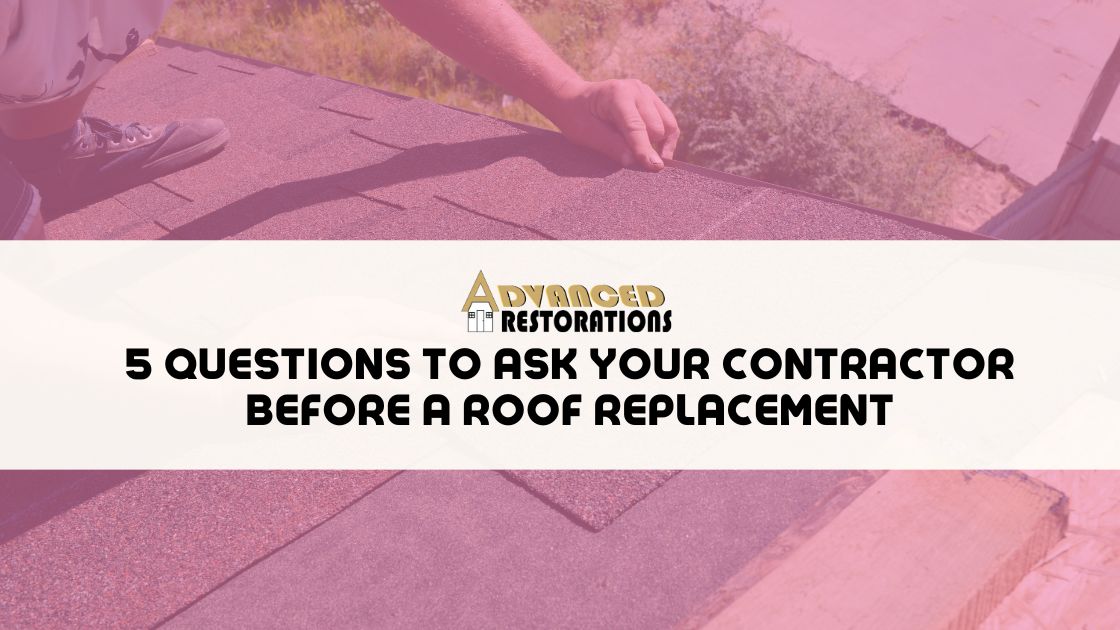
5 Questions to Ask Your Contractor Before a Roof Replacement
Replacing your roof is a major investment and one that deserves careful planning. The quality of your roof impacts your home’s safety, energy efficiency, resale value, and ability to withstand Missouri’s unpredictable weather. Unfortunately, not all contractors are equal.
To protect your investment, it’s crucial to ask the right questions before signing any contracts. Here are five essential questions you should ask your roofing contractor and what answers to look for (and avoid).
1. Are You Licensed, Insured, and Certified by Any Manufacturers?
Why it matters: A valid contractor’s license ensures that the company meets the legal requirements to operate in your state or municipality. Insurance protects you if someone gets injured on your property or if there is accidental damage during the project. Manufacturer certifications, like being an Owens Corning Platinum Preferred Contractor, mean the contractor has been vetted for quality and training.
What you want to hear:
-
“Yes, we are fully licensed in the state of Missouri.”
-
“We carry at least $1M in liability insurance and full workers’ comp.”
-
“We’re certified by Owens Corning and can offer extended warranties.”
Red flags:
-
“We don’t need a license in this area.”
-
“We’re insured through our subcontractors.”
-
“We’re not certified, but we use good materials.”
Why it’s a problem: Contractors without proper credentials can leave you with code violations, denied insurance claims, or even lawsuits. Always ask for proof.
2. Will You Remove My Old Roof or Just Shingle Over It?
Why it matters: A proper roof replacement starts with a full tear-off. This allows the contractor to inspect the decking for rot, re-nail loose sheathing (per code R905.2.1), and make necessary repairs. Installing new shingles over old ones might save money upfront, but it hides underlying problems and often voids warranties.
What you want to hear:
-
“We always do a full tear-off to ensure the decking and structure are sound.”
-
“We inspect for code-compliant decking thickness (minimum 5/8″) and re-nail as needed.”
Red flags:
-
“We can save you money by installing over the old roof.”
-
“As long as it looks okay, we don’t need to remove it.”
Why it’s a problem: Shingling over old materials may violate building codes, create excess weight on your roof structure, and lead to early failure.
3. How Do You Handle Flashing, Valleys, and Other Critical Areas?
Why it matters: The most leak-prone areas of a roof are places where water is directed—valleys, chimneys, walls, and vents. Improper or skipped flashing causes most roofing issues. Local code R905.2.8.2 requires specific valley linings (usually ice & water membrane or metal flashing), and R1003.2 governs chimney crickets.
What you want to hear:
-
“We install new flashing and valley protection on every job.”
-
“We use ice & water membrane in valleys and around penetrations.”
-
“Chimneys over 30 inches wide get a cricket per code.”
Red flags:
-
“We reuse existing flashing unless it’s obviously damaged.”
-
“We don’t bother with crickets unless there’s already a leak.”
Why it’s a problem: These shortcuts may save time, but they dramatically increase your chances of leaks and they ignore basic code compliance.
4. What Kind of Warranty Do You Offer and Who Backs It?
Why it matters: Roofing warranties vary widely. A reputable contractor offers both a workmanship warranty (they stand behind their labor) and a manufacturer warranty (covering materials). Certified contractors like Owens Corning Platinum Preferred installers can extend this into 50-year, non-prorated protection.
What you want to hear:
-
“We offer a 10-year workmanship warranty.”
-
“As a Platinum Preferred Contractor, we can offer the Owens Corning Platinum Protection warranty.”
Red flags:
-
“We don’t really do warranties, but we’ll come back if there’s a problem.”
-
“The shingle box has a warranty, you can deal with the manufacturer.”
Why it’s a problem: If anything goes wrong, you may be stuck covering the cost of repairs yourself. And if the contractor disappears, you’re out of luck.
5. Will You Pull Permits and Ensure All Work Meets Local Code?
Why it matters: Roofing work must comply with local building codes, and most jurisdictions (including Springfield and surrounding areas in the Ozarks) require permits for roof replacement. Codes like R905.2.2 (minimum roof slope), R905.2.7.1 (ice barrier requirements), and R907.5 (component replacement) must be followed to pass inspections and keep your home safe.
What you want to hear:
-
“Yes, we handle all permitting and will ensure your project meets 2012/2018 IRC codes used locally.”
-
“We work with inspectors regularly and build everything to code.”
Red flags:
-
“Permits aren’t really necessary for roofing.”
-
“You’ll save money if we skip the permitting.”
Why it’s a problem: Unpermitted or non-compliant work can lead to fines, problems with selling your home, and costly repairs after failed inspections.
Final Thoughts
Your roof is one of your home’s most important protective systems. Don’t trust it to just anyone. By asking these five questions and knowing what answers to expect, you can protect your home, your wallet, and your peace of mind.
At Advanced Restorations, we take pride in our commitment to quality, code compliance, and honest communication. As an Owens Corning Platinum Preferred Contractor serving Springfield and the greater Ozarks region, we’re always ready to walk you through your options and answer your questions thoroughly.
Schedule a free inspection today and let’s make sure your next roof is done the right way.
